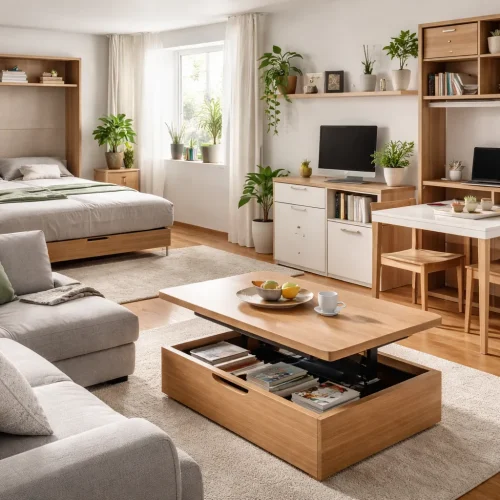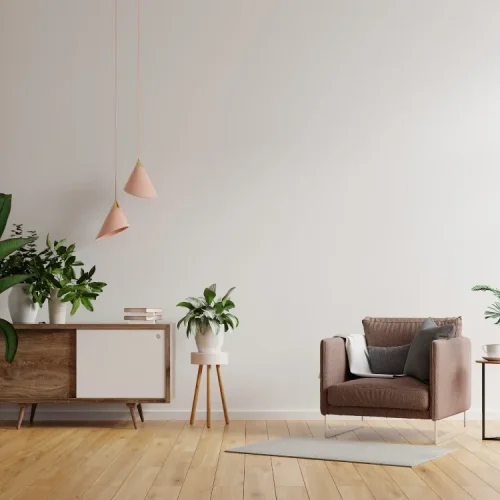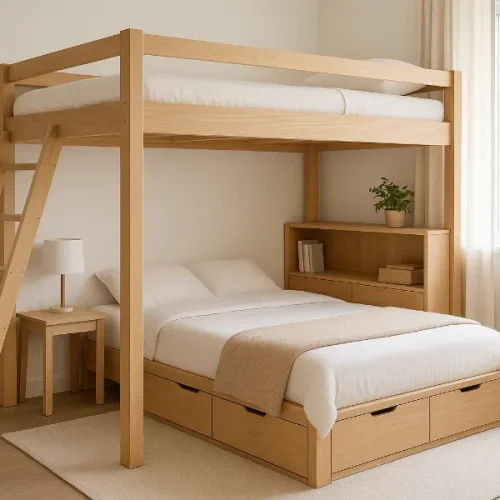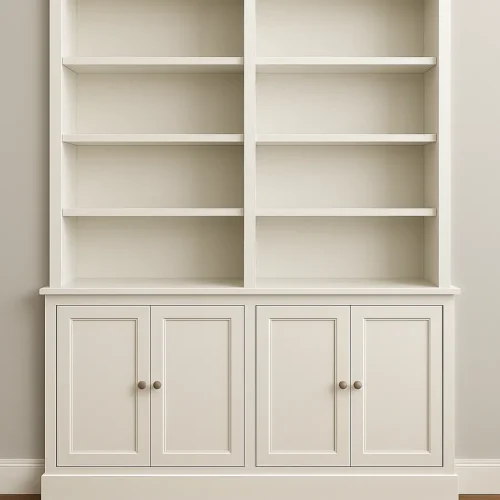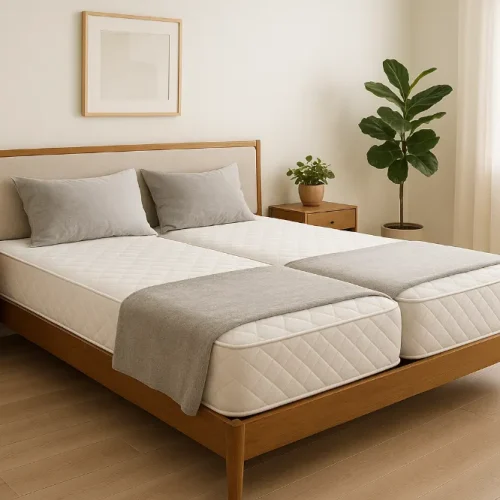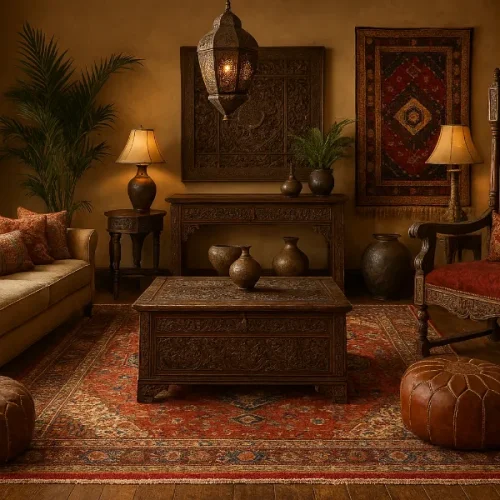If you’re shopping for a new bed and wondering about twin bed dimensions, you’re not alone. A twin bed is one of the most popular options for children, teenagers, and adults who need a compact, budget-friendly solution. But before you commit, it’s worth diving into the details—because choosing the right bed size is more than just about comfort. It’s about space, style, and how well it fits into your life.
Standard Twin Bed Dimensions
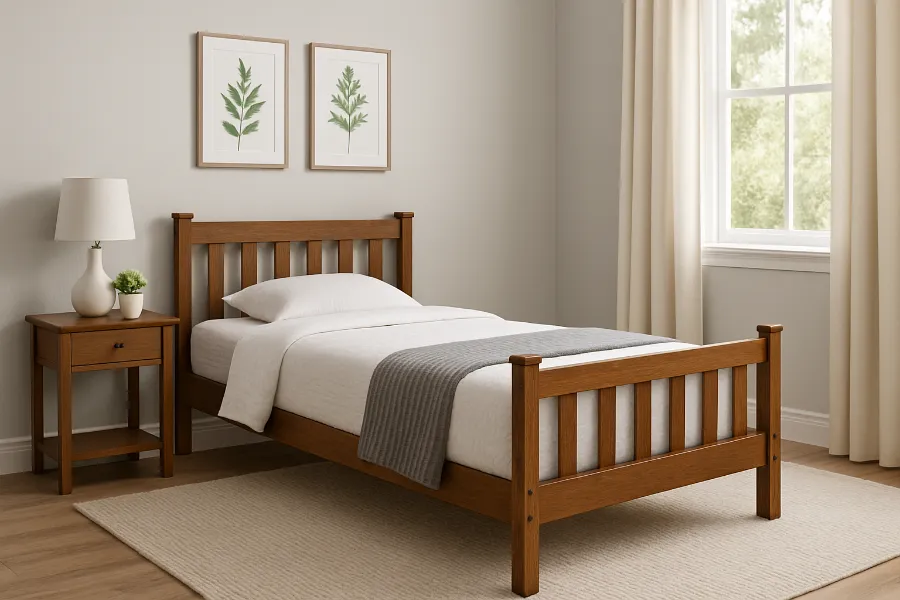
A standard twin mattress measures 38 inches wide by 75 inches long (about 96.5 cm by 190.5 cm). That makes it the smallest traditional bed size on the market.
Here’s a quick conversion chart for clarity:
| Mattress Size | Inches (Width x Length) | Centimeters | Feet |
|---|---|---|---|
| Twin | 38 x 75 | 96.5 x 190.5 | 3.16 x 6.25 |
| Twin XL | 38 x 80 | 96.5 x 203 | 3.16 x 6.66 |
A twin is compact, yet still long enough to accommodate most sleepers under six feet tall.
Twin vs. Twin XL Beds
At first glance, twin and twin XL mattresses look almost identical, since both are 38 inches wide. The difference lies in the length:
- Twin: 38” x 75” – best for children, teens, and adults under 6 feet tall.
- Twin XL: 38” x 80” – adds five extra inches, perfect for taller teenagers, college students, or adults who like to stretch out.
You’ll often find twin XL beds in dorm rooms because they balance compact width with enough legroom for growing students.
Who Should Choose a Twin Bed?
Not every sleeper fits the same bed. A twin mattress is best suited for:
Children
Twin beds are often a child’s first “big kid” bed after outgrowing a crib or toddler mattress. They’re also a common choice for bunk beds.
Teenagers
For growing teens, a twin bed is usually enough space. Unless they hit a sudden growth spurt, most teens are comfortable with the 75-inch length.
Adults Under 6 Feet Tall
Many adults still find twin beds practical—especially in small apartments or shared living spaces. If you’re under six feet tall and sleep alone, a twin can be a smart fit.
Ideal Room Size for a Twin Bed
Because of their compact footprint, twin beds are incredibly space-friendly.
- Minimum room size: 7 x 9 feet (for a snug fit)
- More comfortable fit: 8 x 10 feet (leaves room for extras like a desk or dresser)
This makes twin beds excellent choices for smaller bedrooms, kids’ rooms, or even guest spaces where you don’t want the bed to dominate the floor plan.
Benefits of Twin Beds
Why do so many households choose twin beds? Here are the standout advantages:
- Space-saving – Perfect for small rooms, studios, and apartments.
- Budget-friendly – Both the mattresses and accessories (sheets, duvets, frames) are cheaper compared to larger sizes.
- Versatile – Ideal for kids’ rooms, bunk beds, dorms, and daybeds.
- Easy to Move – Lightweight and simple to transport compared to bulkier mattresses.
Limitations of Twin Beds
Of course, twin beds aren’t for everyone. Here are the key drawbacks:
- Too short for people over 6 feet tall.
- Narrow for restless sleepers who toss and turn.
- Not suitable for couples (unless used side by side as a split king setup).
Comparison with Other Mattress Sizes
To put twin beds into perspective, here’s how they compare to other popular mattress sizes:
| Size | Dimensions (inches) | Best For |
|---|---|---|
| Twin | 38 x 75 | Kids, teens, single adults with small rooms |
| Twin XL | 38 x 80 | Taller singles, dorm rooms |
| Full (Double) | 54 x 75 | Single adults wanting more space, guest rooms |
| Queen | 60 x 80 | Couples or single sleepers who like to sprawl |
| King | 76 x 80 | Couples with kids/pets |
| California King | 72 x 84 | Tall individuals, spacious master bedrooms |
This chart highlights just how compact a twin bed is compared to the rest.
Choosing the Right Twin Mattress
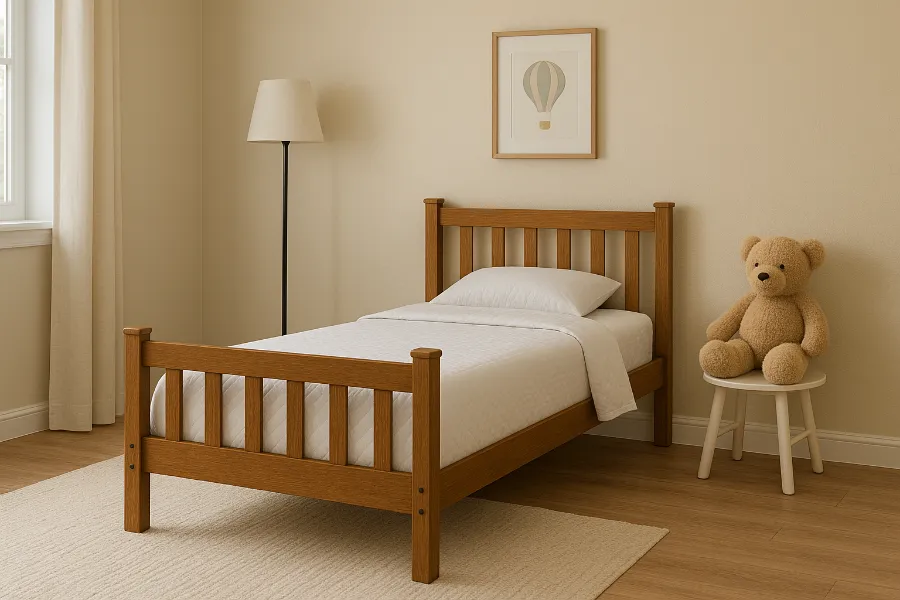
Even within the same dimensions, not all twin mattresses are created equal. Here are some factors to consider before buying:
Height
If you’re under six feet, a twin will likely work. Taller? Consider the twin XL.
Sleep Position
- Side sleepers often curl up, making a twin comfortable.
- Back and stomach sleepers, who stretch out fully, may find it restrictive.
Bedroom Size
Measure your space. If your room is smaller than 7 x 9 feet, even a twin may feel cramped with other furniture.
Budget
Twin mattresses are the most affordable. Prices range widely depending on whether you choose memory foam, innerspring, hybrid, or latex.
Best Bedding and Accessories for Twin Beds
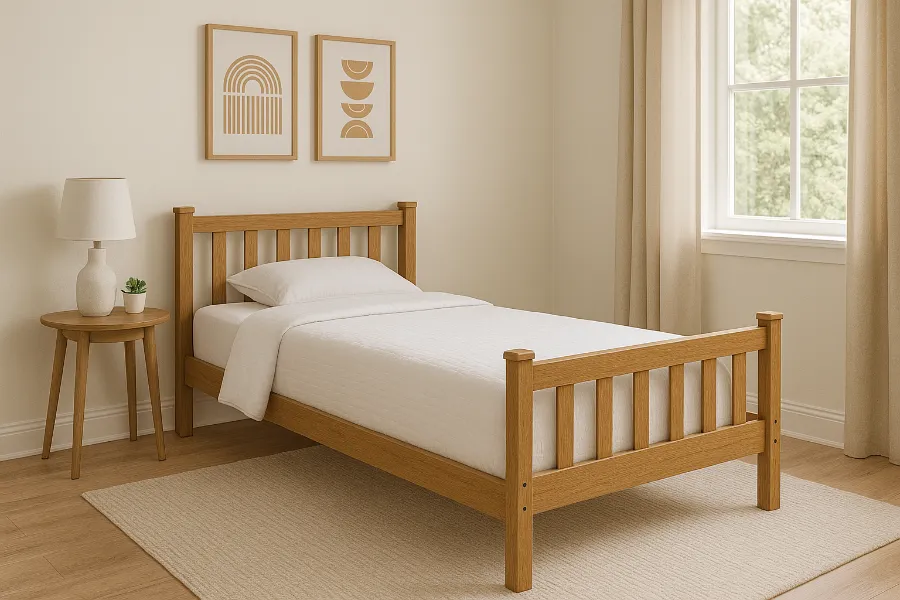
Finding bedding for twin beds is easy. Here’s what you’ll typically need:
- Twin sheets (standard size 38 x 75 inches)
- Twin comforter or duvet
- Pillows and pillowcases
- Mattress protector
- Optional bed skirt
If you’re buying a twin XL, be sure to double-check bedding sizes since not all twin sheet sets will fit the extra length.
Conclusion: Is a Twin Bed Right for You?
When it comes to twin bed dimensions, the 38” x 75” mattress is a compact, budget-friendly, and versatile option. It’s ideal for children, teens, and single adults who don’t need much sleeping space. Twin beds fit beautifully into small rooms, making them a top choice for families, students, and anyone living in a tighter space.
However, if you’re taller than six feet, share your bed, or like to spread out, you’ll likely want to size up to a twin XL, full, or even a queen.
Ultimately, the best mattress is one that balances your body size, room layout, and budget—while still leaving space for you to get the quality rest you deserve.


